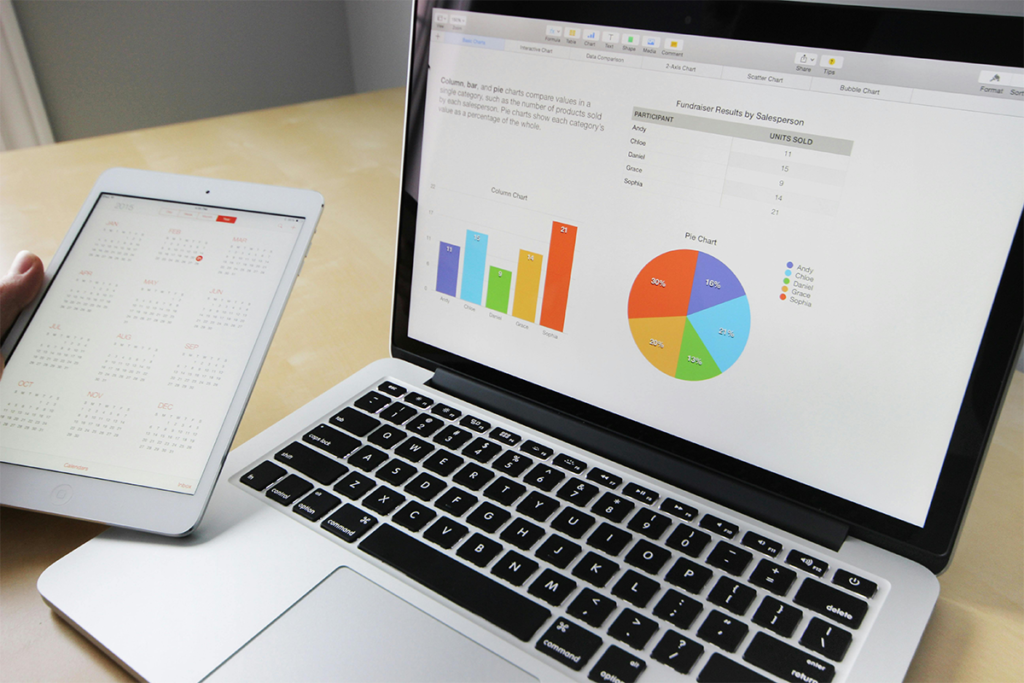In this age of information, it has become very important to protect our privacy to be on the safe side of the internet. The news about data breaches is frequent, and your data could end up in the hands of a third-party advertiser without giving you a single clue. This methodology of earning some extra cash is common with most of the famous CRM service providers. They manipulate your data, and here comes in handy, these are the best CRM for sensitive data protection and privacy.
According to the renowned businessmen, it is imperative to your success to protect your as well as your customer information from these data-hungry companies. This way, you can stay safe and focus merely on your business goals instead of mingling with unnecessary unforeseen hurdles.
Top 10 Best CRM for Sensitive Data Protection and Privacy Tools
Below you will meet ten platforms that watch over private records with care. Each one solves different problems, yet all guard information tightly. Read each section to see which option fits your organisation best. If you are a professional who is looking for a secure CRM, you might be interested in learning about the 10 best CRM security practices here!

1. DejaOffice CRM
DejaOffice CRM gives full control to the user. Running on a desktop or self-hosted server, it never sends records to a public cloud. This approach forms a secure self-hosted CRM platform where data rests under your own roof.
The DejaOffice locks every file with AES-256 encryption and uses TLS 1.3 when data travels. Roles and permissions let managers decide who sees what. Audit logs track each change, so regulators can confirm that rules were followed.
Pros:
- Full local data control.
- AES-256 plus TLS 1.3.
- Optional secure DejaCloud sync.
- Offline encrypted Wi-Fi sync.
Cons:
- The interface takes time to learn
- The setup process may be time-consuming
- No live chat support for free users.
- Requires installing the desktop app.
2. Capsule CRM
Capsule CRM offers a simple layout that teams learn quickly. Hosted in the United Kingdom, it meets strict GDPR rules and stores backups in certified data centres. Because it handles consent forms and deletion requests automatically, it serves as a GDPR compliant customer database system.
Encryption covers both stored files and live sessions. The open API adds new apps without draining security. Rate limits stop attackers from flooding the account with bad requests.
Pros:
- ISO 27001 UK hosting.
- One-click GDPR data export.
- External security audits conducted.
- Two-factor login is supported.
Cons:
- No on-premise install option.
- Public cloud jurisdiction risk.
- No field-level encryption.
- Lacks HIPAA compliance support.
3. Spotler CRM
Spotler CRM, once called Really Simple Systems, lets clients choose data centres in the European Union or the United Kingdom. That choice supports a private cloud contact management software model.
A built-in privacy toolkit in this CRM for private companies records when contacts give marketing consent. Attachments receive their own encryption keys, so even if one file falls, others remain safe. The email scanner checks messages for harmful links before they reach the timeline.
Pros:
- EU or UK hosting choices.
- GDPR consent engine built-in.
- Per-file unique encryption keys.
- Customer-managed keys are available.
Cons:
- No self-hosted edition offered.
- No HIPAA regulation coverage.
- Marketing focus limits depth.
- SAML costs a higher tier.
4. SuiteCRM (Self-Hosted)
SuiteCRM is an open-source product that anyone can inspect. Regular code reviews catch issues early, making it an open-source, privacy-centric CRM.
Companies may install SuiteCRM on local machines, inside sovereign clouds, or on small edge devices. Plug-ins add multifactor login, custom encryption, and ticket routing rules. Because you hold the source code, hidden trackers cannot hide inside.
Pros:
- Fully open-source inspected code.
- Any on-premise cloud deployment.
- Pluggable security modules are available.
- Standard SQL data export.
Cons:
- Linux admin skills required.
- Field encryption needs add-ons.
- No official compliance reports.
- Upgrades risk module breakage.
5. Act! CRM (On Premise or Private Cloud)
Act! CRM started as a desktop tool and still offers that freedom today. With local or private-cloud hosting, it becomes an on-premise private equity CRM solution.
Field-level security hides salary numbers from staff who do not need them. Transparent Data Encryption shields the SQL database, and daily backups move off-site only after being encrypted. These steps ensure that lost laptops never contain encrypted records.
Pros:
- Physical custody of the database.
- Granular field access controls.
- Supports SQL transparent encryption.
- Private cloud SOC-2 option.
Cons:
- Windows stack excludes Linux.
- The legacy interface feels outdated.
- Mobile access adds complexity.
- No built-in compliance automation.
6. Blaze.tech HIPAA Compliant CRM Builder
Health organisations need very special care. Blaze. Tech lets users drag and drop screens to create an encrypted healthcare client records manager designed for HIPAA.
Each customer receives an isolated database inside a private cloud. Role rules, audit trails, and BAAs come ready out of the box. Conditional alerts flag odd access, so administrators can act before small issues grow big.
Pros:
- Vendor signs HIPAA BAA.
- Audit logs are enabled automatically.
- Drag-and-drop workflow builder.
- Isolated tenant database security.
Cons:
- No self-hosting is currently offered.
- Small ecosystem and community.
- Customisation can cause drift.
- Pricing climbs with usage.

7. ManageEngine DataSecurity Plus
ManageEngine DataSecurity Plus is not a full CRM, yet it wraps strong shields around existing data. By classifying and encrypting fields, it turns other tools into a role-based access control CRM setup.
More than two hundred reports cover laws like PCI-DSS and CCPA. Real-time alarms warn if a user starts massive downloads or plugs in strange devices. Quick action then stops leaks before they spread.
Pros:
- Automatic PII discovery encryption.
- Real-time insider threat alerts.
- Extensive compliance report library.
- File integrity monitoring included.
Cons:
- Requires an existing CRM attachment.
- Windows-only agent limitation.
- Large infrastructure footprint needed.
- Modular licensing increases cost.
8. PrivFramework-based CRM
PrivFramework-based CRM grew from research into real use. It works as a low-code data-sovereignty CRM tool where each piece of data carries its own policy tag.
Keys rotate on a schedule tied to legal rules, cutting the chance of long-term key exposure. When records move between laptops, the policies move with them. This design respects different national laws without manual sorting.
Pros:
- Policy-attached runtime encryption.
- Static analysis enforces privacy.
- Automatic encryption key rotation.
- Custom regional mandates support.
Cons:
- Prototype lacks production support.
- Requires coding policy scripts.
- No graphical interface present.
- Absent industry certifications currently.
9. Zeph-style CRM
Zeph-style CRM places a cryptographic fingerprint on every change. That design forms an audit-trail-enabled customer platform.
The system talks to hardware security modules for safe key storage and even supports algorithms that stand against future quantum attacks. These layers make it the best CRM in the market, which helps banks and government contractors show clear evidence during audits.
Pros:
- Blockchain audit trail is immutable.
- Cryptographic hashes prove integrity.
- Decentralized ledger verification is enabled.
- Meets strict evidentiary standards.
Cons:
- High storage compute overhead.
- Complex key management process.
- Prototype lacks a mature GUI.
- Payload encryption is not included.
10. Self-Hosted Nextcloud with CRM Plugins
Nextcloud often handles files, yet CRM plugins add contact and deal tracking. When hosted on your own server, it becomes a HIPAA-ready sales workflow tracker.
End-to-end encrypted HIPAA-readyctor login, and smart threat detection come standard. Field agents can collect signatures offline and sync later over secure channels. Records never leave the private server unless the owner exports them.
Pros:
- Self-hosting grants sovereignty.
- End-to-end encryption option.
- Built-in regulatory templates are available.
- Role access audits included.
Cons:
- Encryption misses metadata fields.
- Admins must patch promptly.
- Performance tuning for scale.
- Marketplace app quality varies.
Comparison Table: CRM for Sensitive Data Protection and Privacy
| CRM Tool | Hosting Model | Encryption & Security | Primary Compliance Focus | Open-Source? | Stand-out Feature |
|---|---|---|---|---|---|
| DejaOffice CRM | Desktop, self-hosted server, or optional DejaCloud service | AES-256 at rest; TLS 1.3 in transit | GDPR, HIPAA assist | No | Local-first control with secure cloud-sync via DejaCloud |
| Capsule CRM | UK SaaS (EU/UK data centres) | AES-256 at rest; TLS 1.2+ in transit | GDPR workflows | No | One-click data-subject export and deletion |
| Spotler CRM | EU / UK cloud or customer-key model | Per-file encryption; modern TLS | GDPR toolkit | No | Integrated marketing-consent engine |
| SuiteCRM (Self-Hosted) | Self-host or sovereign cloud | Pluggable encryption; MFA add-ons | GDPR ready | Yes (AGPL v3) | Fully auditable open-source code |
| Act! CRM | On-premise desktop or private cloud | SQL TDE; TLS; MFA | SOC 2, GDPR assist | No | Field-level record security |
| Blaze.tech HIPAA-Compliant CRM Builder | Isolated private cloud tenancy | AES-256 + TLS; audit logs | HIPAA (BAA) | No | Drag-and-drop builder with built-in HIPAA controls |
| ManageEngine DataSecurity Plus | On-premise Windows / VM | Real-time classification & encryption | GDPR, PCI-DSS, CCPA | No | 200+ compliance reports and insider-threat alerts |
| PrivFramework-based CRM | Configurable self-host / cloud | Policy-attached encryption; auto key rotation | Custom privacy policies | Prototype | Data policies travel with the data (research-grade) |
| Zeph-style CRM | User-managed (hybrid) | Immutable audit fingerprints; hybrid crypto | Evidentiary compliance | Prototype | Tamper-evident blockchain-style logs |
| Self-Hosted Nextcloud + CRM Plugins | Self-host / VPS | End-to-end client and server-side encryption options | HIPAA-friendly when configured | Yes (AGPL) | Unified file, chat, contacts, and deals on one server |
Conclusion
Sensitive data deserves careful handling. The tools above show many paths to strong protection. DejaOffice gives total local control when used with CompanionLink, while Zeph-style CRM proves that advanced cryptography can stay user-friendly.
No matter which platform you select, user-friendly technology alone cannot guarantee safety. Staff training, timely updates, and steady audits all work together with the CRM for sensitive data to keep trust intact. By pairing the right tool with good habits, any organisation can serve customers confidently and securely.